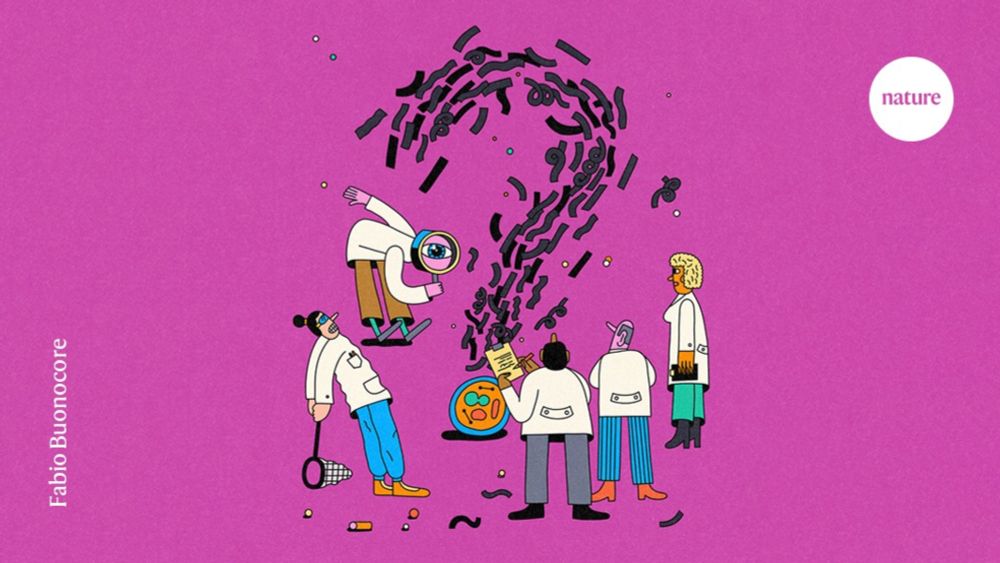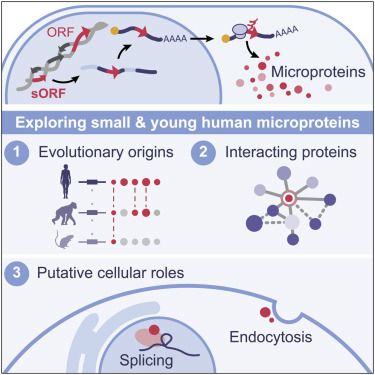An expanded reference catalog of translated open reading frames for biomedical research
Non-canonical (i.e., unannotated) open reading frames (ncORFs) have until recently been omitted from reference genome annotations, despite evidence of their translation, limiting their incorporation into biomedical research. To address this, in 2022, we initiated the TransCODE consortium and built the first community-driven consensus catalog of human ncORFs, which was openly distributed to the research community via Ensembl-GENCODE. While this catalog represented a starting point for reference ncORF annotation, major technical and scientific issues remained. In particular, this initial catalogue had no standardized framework to judge the evidence of translation for individual ncORFs. Here, we present an expanded and refined catalog of the human reference annotation of ncORFs. By incorporating more datasets and by lifting constraints on ORF length and start-codon, we define a comprehensive set of 28,359 ncORFs that is nearly four times the size of the previous catalog. Furthermore, to aid users who wish to work with ncORFs with the strongest and most reproducible signals of translation, we utilized a data-driven framework (i.e. translation signature scores) to assess the accumulated evidence for any individual ncORF. Using this approach, we derive a subset of 7,888 ncORFs with translation evidence on par with canonical protein-coding genes, which we refer to as the Primary set. This set can serve as a reliable reference for downstream analyses and validation, with a particular emphasis on high quality. Overall, this update reflects continual community-driven efforts to make ncORFs accessible and actionable to the broader research public and further iterations of the catalog will continue to expand and refine this resource. ### Competing Interest Statement J.R.P. has received research honoraria from Novartis Biosciences and Quantum-Si, and is a paid consultant for ProFound Therapeutics. J.L.A. is an advisor to Microneedle Solutions. G.M. is co-founder and CSO of OHMX.bio. P.F. is a member of the scientific advisory board of Infinitopes. A.-R. C. is a member of the advisory board of ProFound Therapeutics. P.V.B. is a cofounder and shareholder of Eirnabio Ltd.
Are you looking to study the #darkproteome but don't know where to start?
Never fear, we've got your back.
Here, we share the latest catalog for #RiboSeq #ORFs.
Thanks to Sonia Chothani and @jruizorera.bsky.social for leading!
🧪
💻 + 🧬
#GENESky
#bioinformatics
www.biorxiv.org/content/10.1...
07.07.2025 13:24 — 👍 22 🔁 8 💬 1 📌 0
Thank you, Henrik!! ☺️
21.02.2025 05:54 — 👍 1 🔁 0 💬 0 📌 0
Hi everyone! We are still welcoming applicants for a computational postdoc position. If your profile fits our lab interests, please do reach out to me for more information or apply directly via the link below. I'm looking forward to reading your application! www.academictransfer.com/en/jobs/3488...
18.02.2025 12:00 — 👍 8 🔁 10 💬 0 📌 1
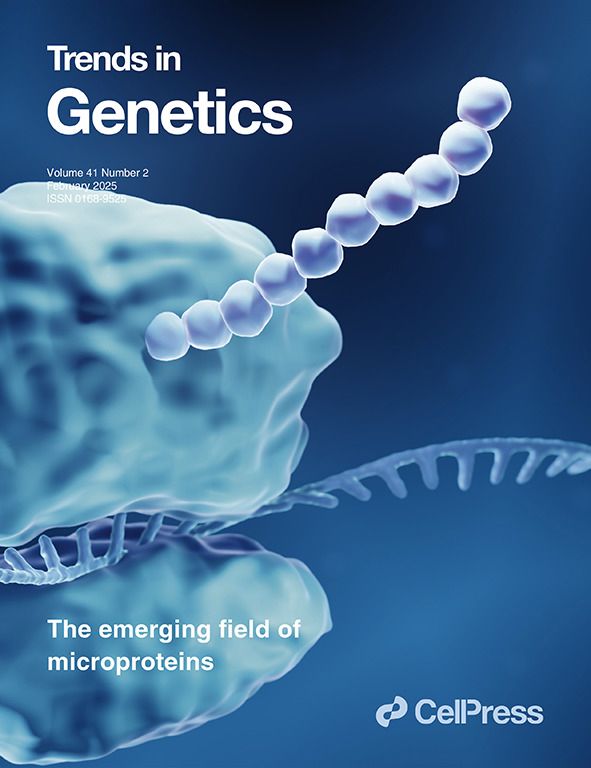
TiG's February issue is devoted to microproteins and the small ORFs that encode them.
Check it out!
www.cell.com/trends/genet...
03.02.2025 16:37 — 👍 14 🔁 4 💬 0 📌 2
🔎microproteins special issue!
11.02.2025 05:41 — 👍 9 🔁 3 💬 0 📌 0
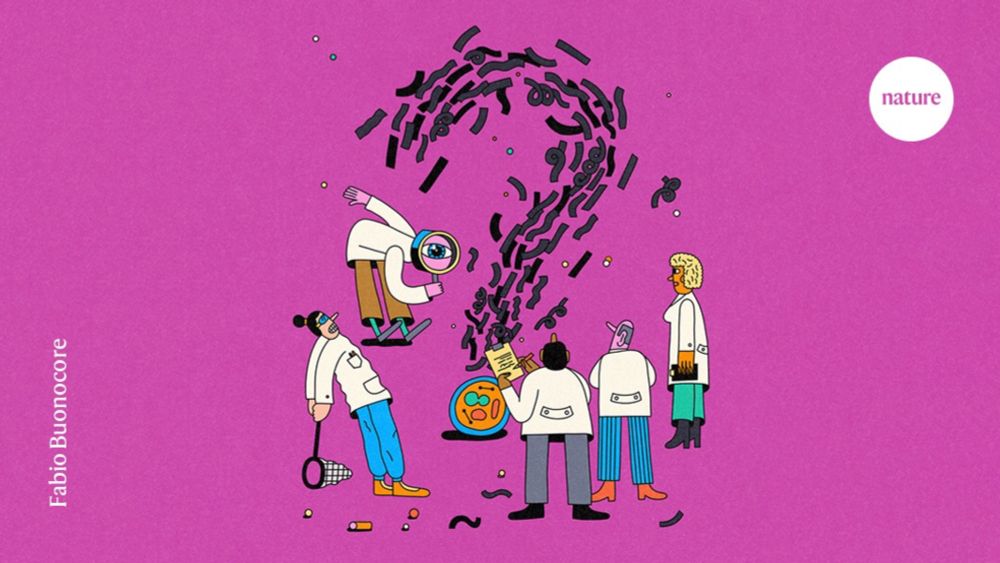
‘Dark proteins’ hiding in our cells could hold clues to cancer and other diseases
The human genome encodes potentially thousands of tiny proteins that were previously overlooked. The search is on to find out what they do.
I wrote for @natureportfolio.bsky.social about 'dark proteins' encoded by our genomes. Once overlooked, they may be central to cancers, cellular biology and evolutionary innovation. As @sebastiaanvheesch.bsky.social told me: "There's new biology here."
www.nature.com/articles/d41...
30.01.2025 16:58 — 👍 24 🔁 5 💬 0 📌 1
Thanks for your contributions to this piece, Xuebing! I’m looking forward to future exchanges about our work.
29.01.2025 18:55 — 👍 1 🔁 0 💬 0 📌 0
Glad to be in the "conversation" about microproteins and other non-canonical proteins arising from noncoding translation. I look forward to continuing the discussion at the upcoming keystone symposium on microproteins
29.01.2025 15:31 — 👍 10 🔁 1 💬 2 📌 0
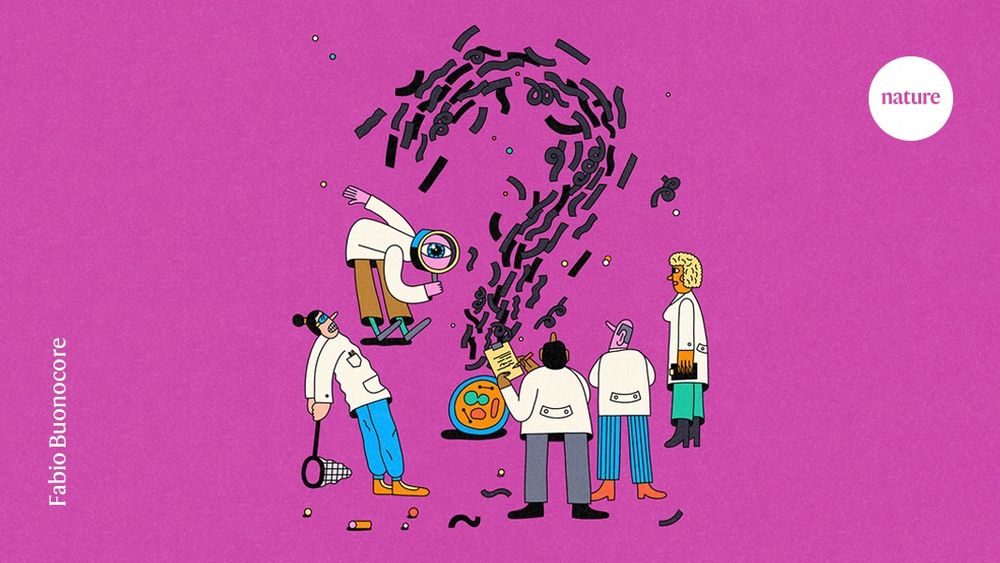
‘Dark proteins’ hiding in our cells could hold clues to cancer and other diseases
The human genome encodes potentially thousands of tiny proteins that were previously overlooked. The search is on to find out what they do.
“The leaders of the Human Genome Project always knew they were just starting a conversation”
The human genome encodes potentially thousands of tiny proteins that were previously overlooked. The search is on to find out what they do
https://go.nature.com/3CupmSS
29.01.2025 11:09 — 👍 96 🔁 25 💬 0 📌 5
Thanks to @nature.com for featuring our recent work and interviewing us for this extensive news article. Exciting read!!!
With @johnprensner.bsky.social and others
29.01.2025 18:53 — 👍 4 🔁 0 💬 0 📌 0
🚨📣 Poster abstracts are due tomorrow! get yours in and register today!!
14.01.2025 15:46 — 👍 6 🔁 2 💬 0 📌 0
Good luck Simon Venneman, Martina Jovancheva, Marina Reixachs Solé, Irene Cabal Blanco, Leron Kok, Emma Westerink, @damonhofman.bsky.social, Luuk Broeils, Ana P Lopes, and over 100 Oncode Institute colleagues and 1000s of others!
#opgevenisgeenoptie #givingupisnotanoption #KWF #AlpeDhuzes
13.01.2025 13:49 — 👍 0 🔁 0 💬 0 📌 0
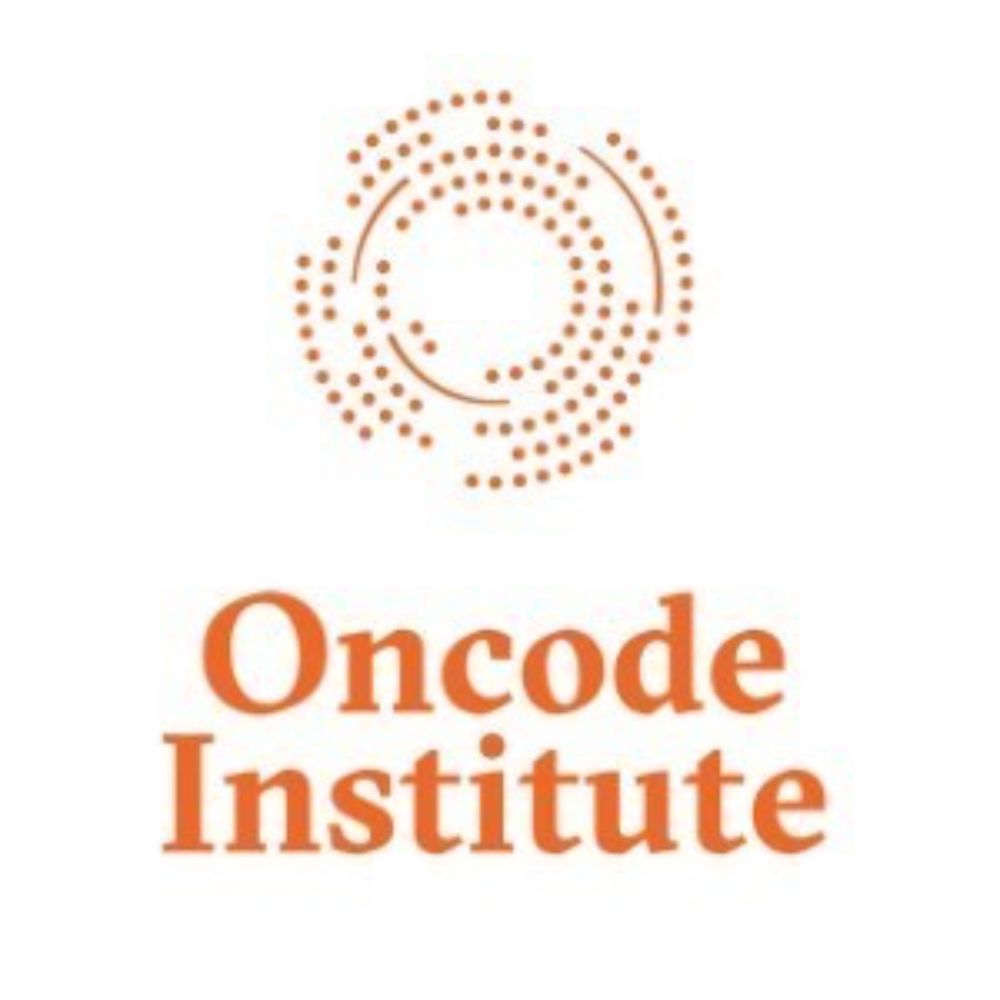
Oncode 3
Wij doen als team mee aan Alpe d’HuZes omdat wij geloven dat wij samen kunnen werken aan een wereld waarin je niet meer doodgaat aan kanker, wil jij ons steunen?
On June 5th this year, 9 van Heesch lab members will battle the steep French Alpe D'huez by bike or foot in the yearly Alpe D'huZes event, to raise money for cancer research. Please do support them in their goal to battle this horrible disease by donating: www.opgevenisgeenoptie.nl/fundraisers/...
13.01.2025 13:49 — 👍 2 🔁 0 💬 1 📌 0

Side by side photographs of a human staring at a computer with their hand on their chin like they're thinking and a chimpanzee outside in the same posture.
Humans are similar to other primates in ways that affect how we treat & interact with them. But when it comes to genetic details critical for biomedical research, key differences make non-human primates poor stand-ins for humans. Two new findings show us why... 🧵
06.01.2025 14:31 — 👍 7 🔁 3 💬 1 📌 2
#Greatread at #Science Magazine about @sebastiaanvheesch.bsky.social latest preprint:'Dark proteome’ survey reveals thousands of new human genes - The newly described genes and their products could upend aspects of human biology and accelerate medical discoveries.
www.science.org/content/arti...
02.12.2024 14:33 — 👍 4 🔁 3 💬 0 📌 0
2025 Decoding Microproteins Across Evolution and Disease Conference GRC
The 2025 Gordon Research Conference on Decoding Microproteins Across Evolution and Disease will be held in Castelldefels, Barcelona Spain. Apply today to reserve your spot.
Registration is OPEN for the Gordon Research Conference on #Microproteins! Scholarships are available.
Get involved now while spaces are still available.
You won't want to miss this!
🧪
🧬 💻
🔎 microproteins
#darkgenome
#NoncodingGenome
#Cancer
#Proteomics
#sORFs
#Ribose
www.grc.org/decoding-mic...
29.11.2024 18:35 — 👍 17 🔁 7 💬 2 📌 0
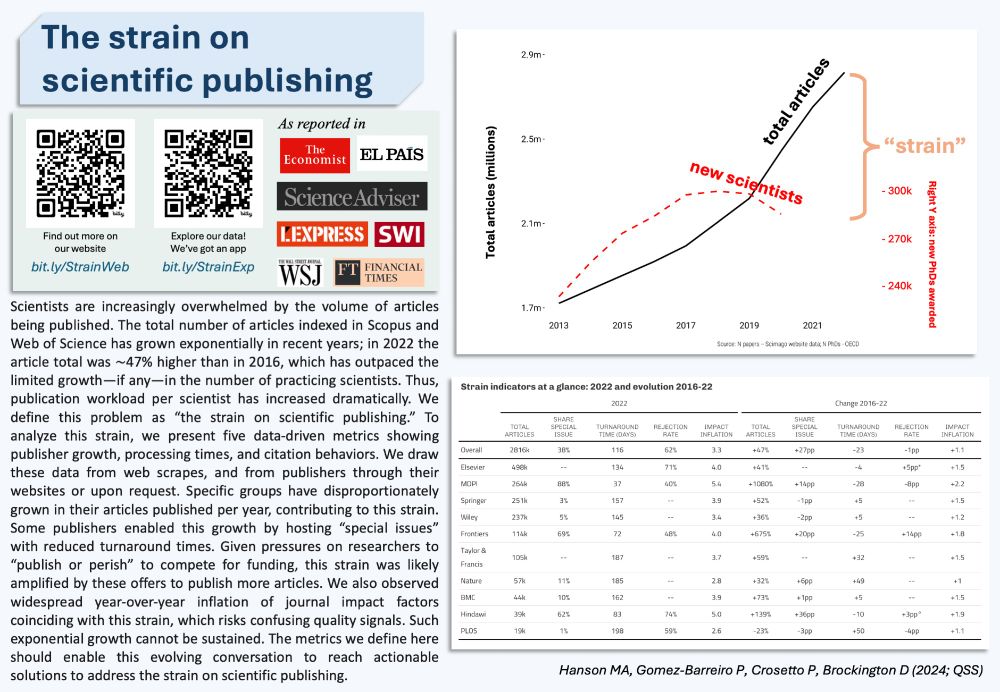
The strain on scientific publishing: we set out to characterise the remarkable growth of the scientific literature in the last few years, in spite of declining growth in total scientists. What is going on?
direct.mit.edu/qss/article/...
A 🧵 1/n
#AcademicSky #PhDchat #ScientificPublishing #SciPub
19.11.2024 12:27 — 👍 992 🔁 559 💬 46 📌 134
Thanks! I appreciate the kind words!
27.11.2024 13:29 — 👍 1 🔁 0 💬 0 📌 0
yes, definitely! That would fit with our observations of many ncORF-peptides being presented to the immune system.
27.11.2024 13:29 — 👍 0 🔁 0 💬 0 📌 0
Fascinating! What would be the evolutionary benefit (if any) for bees to respond to external stress this way, if it compromises the immune system - Is it to increase the chance of producing a peptide that rescues them? Do bees have adaptive/innate immune responses?
27.11.2024 12:03 — 👍 0 🔁 0 💬 1 📌 0
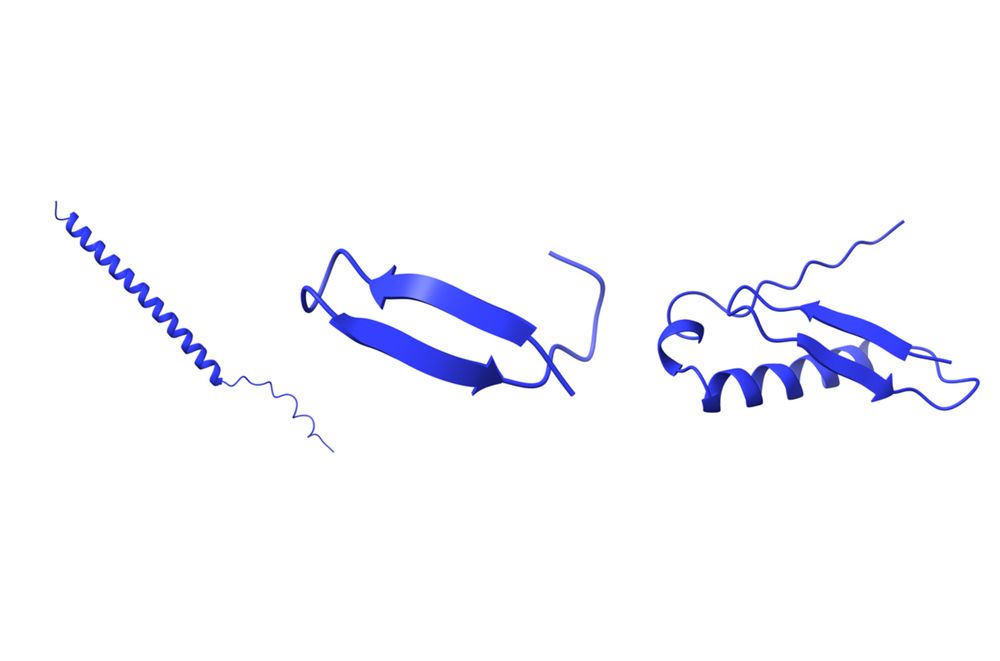
‘Dark proteome’ survey reveals thousands of new human genes
Database confirms that overlooked segments of the genome code for a multitude of tiny proteins
Do you want to go further with your proteomics? Looking for something new in cancer?
Check out microproteins!
Thanks to @science.org for featuring this work, in collaboration with @sebastiaanvheesch.bsky.social, #HUPO, @gencodegenes.bsky.social
www.science.org/content/arti...
🔎 microprotein
🧬 💻
26.11.2024 18:05 — 👍 61 🔁 16 💬 3 📌 1
Hi Jonathan, you are correct. The reporter chose this wording for simplicity in science communication, is my guess. Please do note that if a uORF turns out to be a genuine protein coding region, GENCODE will have to give it a separate gene ID. Otherwise, end users will include only one or the other.
26.11.2024 22:53 — 👍 1 🔁 0 💬 1 📌 0
On Nov 25, I gave the 895th Shudankai Seminar at Chiba Cancer Center, by invitation of my fantastic host Yusuke Suenaga. Great discussion and talks by (young) Chiba cancer scientists Kazuma Nakatani, Ummi Maryam Zulfin, Daisuke Muto, and Seigi Yamamoto. Thank you for the great stay in Tokyo/Chiba!
26.11.2024 13:59 — 👍 0 🔁 0 💬 0 📌 0
After that, I will travel to Sapporo Medical School on Hokkaido for two seminars on Dec 2nd. Japan has been absolutely amazing so far!
26.11.2024 13:59 — 👍 1 🔁 0 💬 1 📌 0
We measure the attention that research outputs receive from policy documents, mainstream news outlets, Wikipedia, social media and online reference managers. We detect sentiment of Bluesky/X posts.
Come for the attention to research. Stay for the memes.
Our research group is interested in the molecular and cellular origins and evolution of vertebrate organs. Tweets by Henrik, usually in the name of our group.
home.kaessmannlab.org
Visualizing RNA regulation in living cells, one molecule at a time.
Human and viral RNAs.
Hubrecht Institute, Oncode Institute and dept. of Bionanoscience, TU Delft
Research, news, and commentary from Nature, the international science journal. For daily science news, get Nature Briefing: https://go.nature.com/get-Nature-Briefing
The Princess Máxima Center treats all children with cancer in The Netherlands | Research hospital | Largest pediatric cancer center in Europe 🧡
Group leader at the Gene Center in Munich. RNA biology and protein translation in Immunity. Looking for excited and motivated students!
Dad in Science, He/His
Editor @ Nature‘s Bio team (nature.com @nature.com) - struct bio, RNA, membrane transport, ribosomes, biophysics, proteomics, synth bio, … - located in Berlin. He/him. Opinions are my own.
Editor in Chief of Nature, geneticist, editor, accidental potter. All views my own
Danish biotech start-up builder living in Paris | RNA Tx & immunotherapy aficionado | Family barista | Kongeblå & Gooner
Senior Lecturer & Consultant Medical Oncologist in Advanced #Immunotherapy + #CellTherapy at The University of Manchester & The Christie • MANIFEST Investigator • ESMO #TranslationalResearch Faculty
🔗 Bio: bit.ly/Christie_JonLim
(tennis enthusiast 🎾)
Inserm researcher and group leader at Institut Curie. Linking cancer immunity, immunotherapy, transcription, and AI/ML. https://institut-curie.org/team/waterfall
Drosophilist, circRNA enthusiast, and lover of all things circadian (not necessarily in that order). This is a personal account.
https://www.brandeis.edu/biology/faculty/kadener-sebastian.html
Staff scientist, Gerst lab, Weizmann Inst.
Husband, father
Topics: Science, Molec/Cell Biology, RNA, microscopy, Tunneling Nanotubes, Sci fi.
Life in Israel (Hebrew)
Blogs: https://greenfluorescentblog.wordpress.com
https://flyingsaucermovies.wordpress.com
RNA, Glycans, Space, Renewable Energy, and all technologies making lives more interesting.
PI at Boston Children’s Hospital SCP
Assistant Professor at Harvard SCRB
UC San Diego Biochemistry studying RNA localization and mitochondria
Molecular motors, mRNA localisation, microscopes4schools, MRC-LMB (Cambridge, UK)
Associate Professor at the Department of Biochemistry, University of Oxford. Fellow of Brasenose College.
Studying RNA binding proteins in cancer.
https://mardakhehlab.info
https://www.bioch.ox.ac.uk/research/mardakheh
Eric Van Nostrand Lab
Therapeutic Innovation Center & the BMP Department, Baylor College of Medicine
Uncovering how RNA binding proteins control RNA processing


